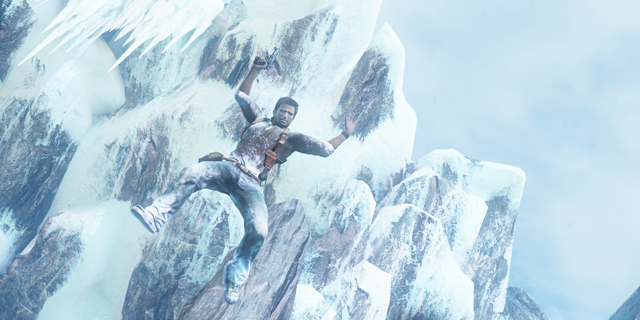
In this column debut, Henry Skey explores losing, and how games don’t need to stop letting you enjoy them when it happens.
How do you feel when you lose? If you’re like most people, you hate it. You hate the potential embarrassment when you admit you lost your hockey game 9-0, even though you only played 2 shifts and barely broke a sweat. You hate how somebody else received the promotion because they’d been sleeping with the boss, when you had put so much effort last week in trying to sleep with your boss. You hate losing because, under certain circumstances, you feel like you’re not good enough. You start to doubt yourself and your abilities. Were they ever there in the first place?
These kinds of thoughts are commonplace when playing games.
Fail a boss, die on that level (again!), receive the gaming equivalent of a pink slip (do they still do those?) and get a game over. Common stereotypes are to throw a controller, swear loudly and punch something soft nearby. I recommend it not be your large roommate. But not all games make you feel this way when you fail. The sign of a great game is how it keeps you coming back after dying. It doesn’t diminish your interest level, but increases it. A truly great game will make failure fun.
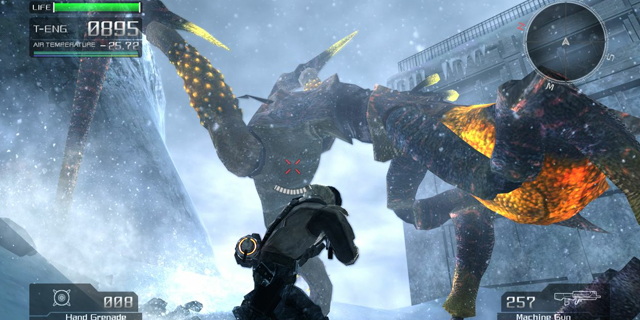
The most important thing to making failure fun is control. A gamer must feel in control at all times. It’s hard enough when a game throws countless enemies at you, or is stingy with the power-ups, or rarely gives you means to replenish your health. But when you’re having a hard time crouching because the button input is delayed, or when one button performs multiple tasks, the game becomes a lesson in how not to design games. Lost Planet was guilty of this. During an early boss fight, I was pleased to learn that I’d be fighting this flying bug creature in a mech. The backdrop was a snowy wasteland. I was pleased, this had all the ingredients of a good boss fight. This pleasure did not last long. The controls made it feel like I had 2 enemies: the giant, flying jerk-insect and my own controller. I quit the game 20 minutes later, never to play again.
Why did I quit? I was enjoying the game up until that point. Killing enemies was satisfying. They’d created an undoubtedly cool world and the graphics were great. Up until the boss fight aforementioned, I had no problem with the difficulty. But a fundamental flaw existed in the controls that wasn’t evident until this boss fight. One button performed two actions, and at the most critical times, would never do the one I wanted. The controls must be perfect, or close to it, in order to make failure fun and make us want to keep going.
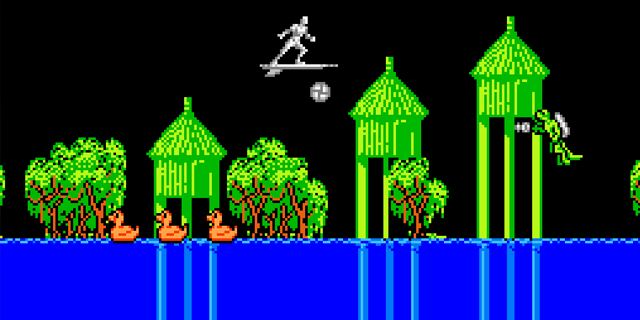
Another factor: the measure of punishment exacted when dying. Does the player have the appropriate amount of health? Are one-hit kills fair? Many porch-residing, cane-waving gamers who remember the good ol’ days of the NES will claim that back in their day, games were way harder than the wimpy ones today. You died in one hit, had no continues and you liked it! The fact is, many of the old games’ extreme difficulty was due to poor design. Most NES games could be beaten in under an hour, so to extend this, they made it ridiculously difficult. Think one-hit kills are fair in games like the NES version of Silver Surfer? A game that hides projectiles against the muddy backgrounds, has a hit radius that borderlines on psychotic and will give you carpal tunnel syndrome if you’re caught playing for extended periods? No, good games will find that oh-so-fine line of punishing you for your failures, but not enough to dissuade you from trying again.
The Uncharted games are a great example of this; they have 4 levels of difficulty to choose from and implement a checkpoint system. If you die, you respawn at the last checkpoint in a few seconds. You don’t waste time waiting for lengthy loading screens, nor are you deterred from trying again; many checkpoints are placed at the beginning of the action, rather than miles back. You start to learn that the guy in the red shirt on the left has a rocket launcher, and should probably be taken out before the guy in the white shirt with a pistol. Due to tight controls and excellent level design, fighting a tough fight over and over doesn’t become as frustrating. You want to keep going. You start learning enemies’ behavior and how to use the landscape to your advantage. It’s a stellar example of when failing is fun, or at the very least delays the fun by mere seconds when punishing the player.
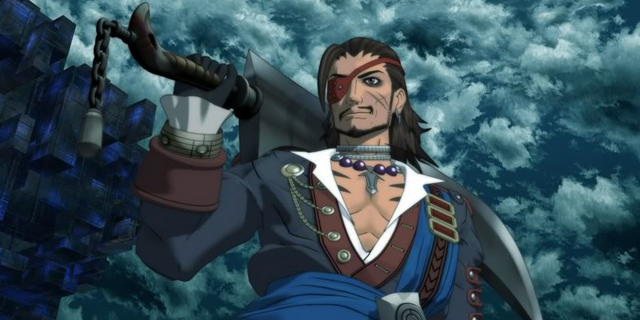
Rogue Galaxy fails in this regard. The end boss fight consists of multiple 1-on-1 fights, with each of your wacky pirate crew members taking on a small part of the end boss. The idea is sound; each character is unique, and they employ mildly-different fighting styles in both melee and ranged attacks. The 1-on-1 fights previously experienced in the game were among the highlights of the package, so why not end it with a bang? Unfortunately, they didn’t account for how a player would feel if they lost. I got to the seventh boss stage, which wasn’t even the last one. Each fight had taken at least a few minutes, so I was a good 20 minutes into it. Zegram was up; ah, the experienced mercenary pirate. The only one with an eye patch. The swashbuckling, treacherous fighter would surely be up to the task of helping me take down the evil, reincarnated flying ship.
My strategy was basic: look at how… wait, I died? From what? I didn’t see it! Ah well, I guess I’ll just have to retry and maybe block right away, or jump out of range. Why is the game’s intro screen popping up? Why am I going to the save file and loading again? Why am I… why am I back to the last save point? That’s right, no checkpoint system. After seven boss fights, and there were still two more to go, I later learned. So to get back to where I was, I had to run to the boss area again and start from scratch? I was absolutely fuming. And it wouldn’t have been as bad had the fights been really fun, but they hadn’t. I had failed, and the game’s punishment was too harsh. They didn’t find that fine line. Unforgivable.
A great game should make you feel like you’re learning a skill. My reaction shouldn’t be:
“I can’t believe the game took me this far back. And what was with that boss? How cheap was that?”
It should be:
“I died, but I’m eager to try again. I feel like I’m getting the hang of it. I’m getting better.”
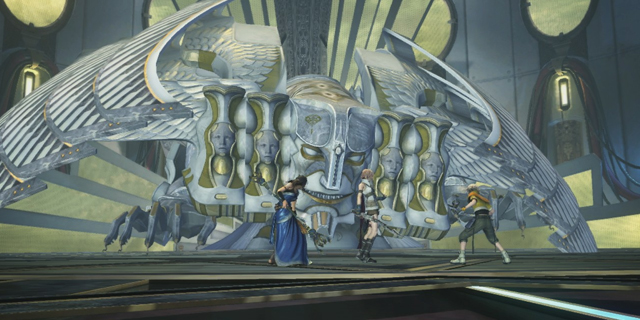
I’m one of the people who really enjoyed Final Fantasy XIII. I know the linear nature and characters drove some crazy, but that’s for another article. What FFXIII did for me was create a battle system so fast, customizable (eventually), unique and fun that I didn’t care when I lost. One boss fight in particular stands out: the second fight with Bartandelus on the outskirts of Oerba Village. This is considered one of the tougher boss fights, with a target time of 14 minutes (on my playthrough, this ranges depending on your level). I knew right away that this would be a long boss fight, a quick scan of him revealed a large amount of HP and his continuous assault on my party members meant quick inputs and decisions were absolutely necessary to stay alive and dish damage.
After an 18-minute defeat, I was shocked at how positive I felt. I began going through the fight in my head. “Okay, what worked and what didn’t? My debuffs were working on him, so I’ll keep that paradigm together. I didn’t buff my characters much, let’s try that next fight. What caused me the biggest headaches? Well, when he did this big attack, two of my party members were killed both times. The solution to that problem is to make a paradigm of all defense to counter that. Ok, let’s go.” And I defeated him easily the next round. No grinding needed, no walkthroughs looked up. The feedback the game gave me was enough. It gave me encouragement; it wasn’t a blowout defeat, I had lost late in the fourth quarter. Despite its shortcomings, FFXIII never made losing battles an entirely frustrating experience. It made failure fun.
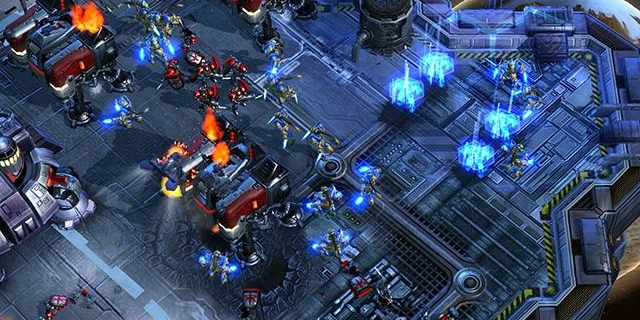
The recent success of StarCraft II cannot be overstated enough. Critics gave the game high reviews. It sold millions. Thousands of games are being played at any given time, anywhere in the world. A great game is enhanced even more, because of how well StarCraft II‘s multiplayer can teach you why you failed, and how you can do better via replays in-game and the surrounding social community. Typing in “StarCraft II” nets 385,000 results on YouTube. You want to learn how to do better? Lost your last 4 matches in a row? Really? No problem, come on in Mr. Gold League. Do you have a pre-game build? No? Here’s 37 six-minute videos showing you various builds you can do. Don’t enjoy 1-on-1? No problem, here are 121 videos (with commentary) showing you how to succeed best in a 3v3 scenario. You only play Shakuras Plateau? Perfect, we just had a professional match last week. And so forth.
Any mistakes you make online have, in all likelihood, happened thousands of times to other players. Look it up, and you can see exactly how to not make the mistake. Your failure becomes a learning tool. Your experiment failed to validate your hypothesis, but so what? Scientists fail many times while researching and experimenting, but that doesn’t stop them from learning. The in-game replays are just as valuable. Here you can find out exactly what your opponent did; okay, I see they expanded more quickly. Ah, but if I go to the 12-minute mark, I can see my main attack crippled him. If only I’d pushed on and scouted, I would have known to go for the kill instead of resting on my laurels. Good to know. Great to know.
What games made you give up? What games gave you the tools and knowledge to learn from your defeats?



















